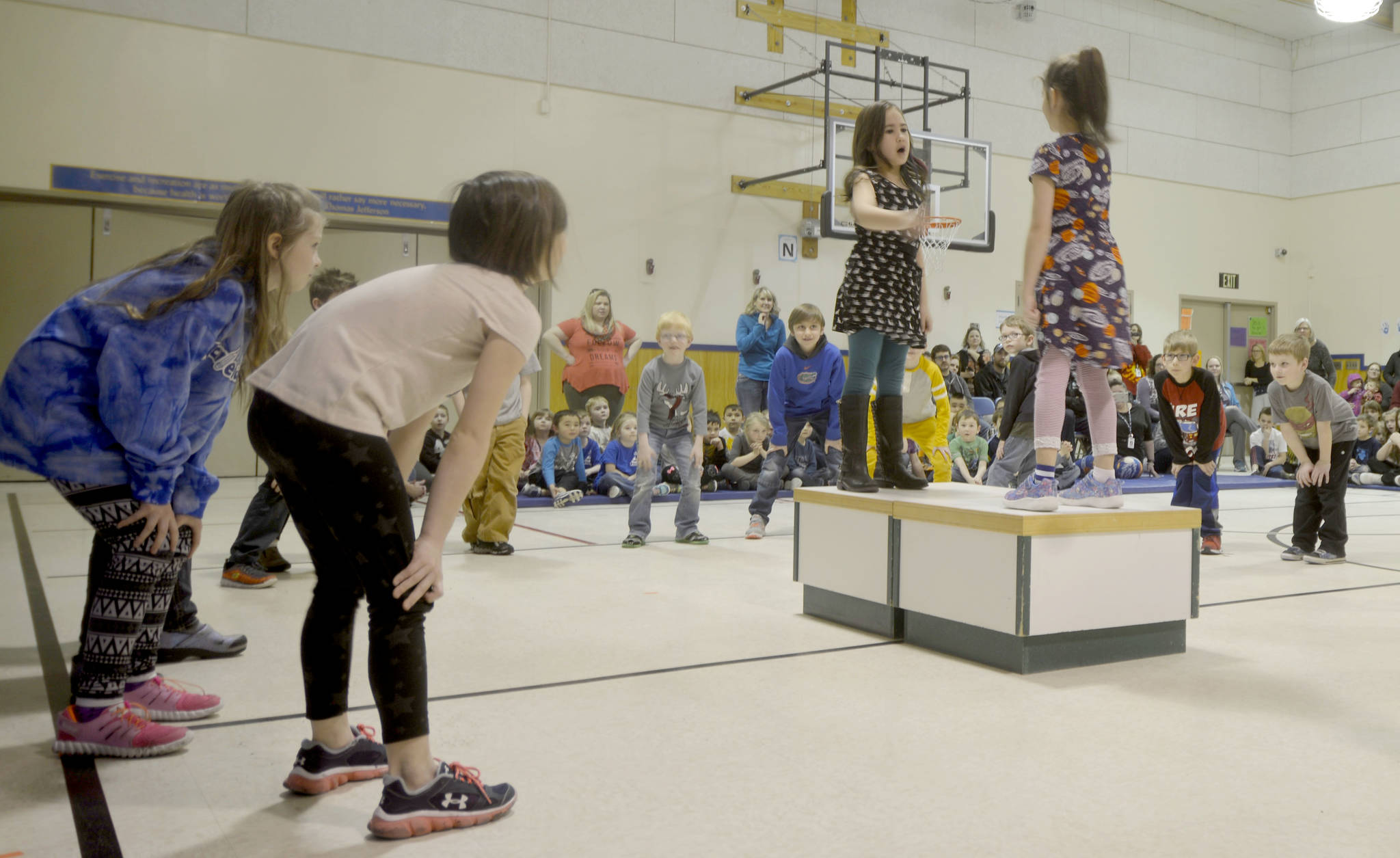All the world’s a stage, and on Thursday afternoon, the students at Kaleidoscope School of Arts and Science were the players.
After two weeks with Artist in Residence Elizabeth Ware, the students performed a series of excerpts from Shakespearian plays including “Hamlet,” “A Midsummer Night’s Dream” and “Romeo and Juliet.”
Each grade, beginning with kindergarten, presented a “snippet of Shakespeare,” led by Ware. The younger classes focused on “A Midsummer Night’s Dream,” with Puck speaking to the fairies. Other classes transformed themselves into the “weird sisters and brothers” from “Macbeth” and recited the famous lines “double, double, toil and trouble.”
The older grades presented “Hamlet” and “Romeo and Juliet.”
Utilizing wooden swords, fifth-grade students performed the first scene of “Romeo and Juliet,” dueling one another as Ware guided their steps from the side of a makeshift stage made in the school’s gymnasium.
“It’s hard for kids to coordinate, but the energy, history and education that the teacher shows to the audience is great,” said Ben Pettingill of Kenai. “It’s pretty cool, art creates personality.”
The “Hamlet” actors recited some of the play’s more famous lines, including “suit the action to the word, the word to the action,” which helped drive Ware’s lessons to the students during her two weeks at Kaleidoscope.
“(The line) is part of Hamlet’s advice to the players and we just drill that over and over again and try to have as much action as we can,” Ware said. “Of course, with the little ones, it’s nearly impossible, but in a half an hour, they learned six lines of Shakespeare.”
Ware, who lived in Anchorage for 25 years but now resides in Portland, Oregon, was a producer and feature actor with the Indiana Shakespeare Festival for 10 years. She started her Artist in Residence at Kaleidoscope School of Arts and Science at the end of February.
“One of the reasons that I like to teach Shakespeare to young people is that, if they can find out it’s fun, it demystifies it,” Ware said. “So, once they can do some action with it, they realize it’s not written in old english, that it is (plain) english.”

